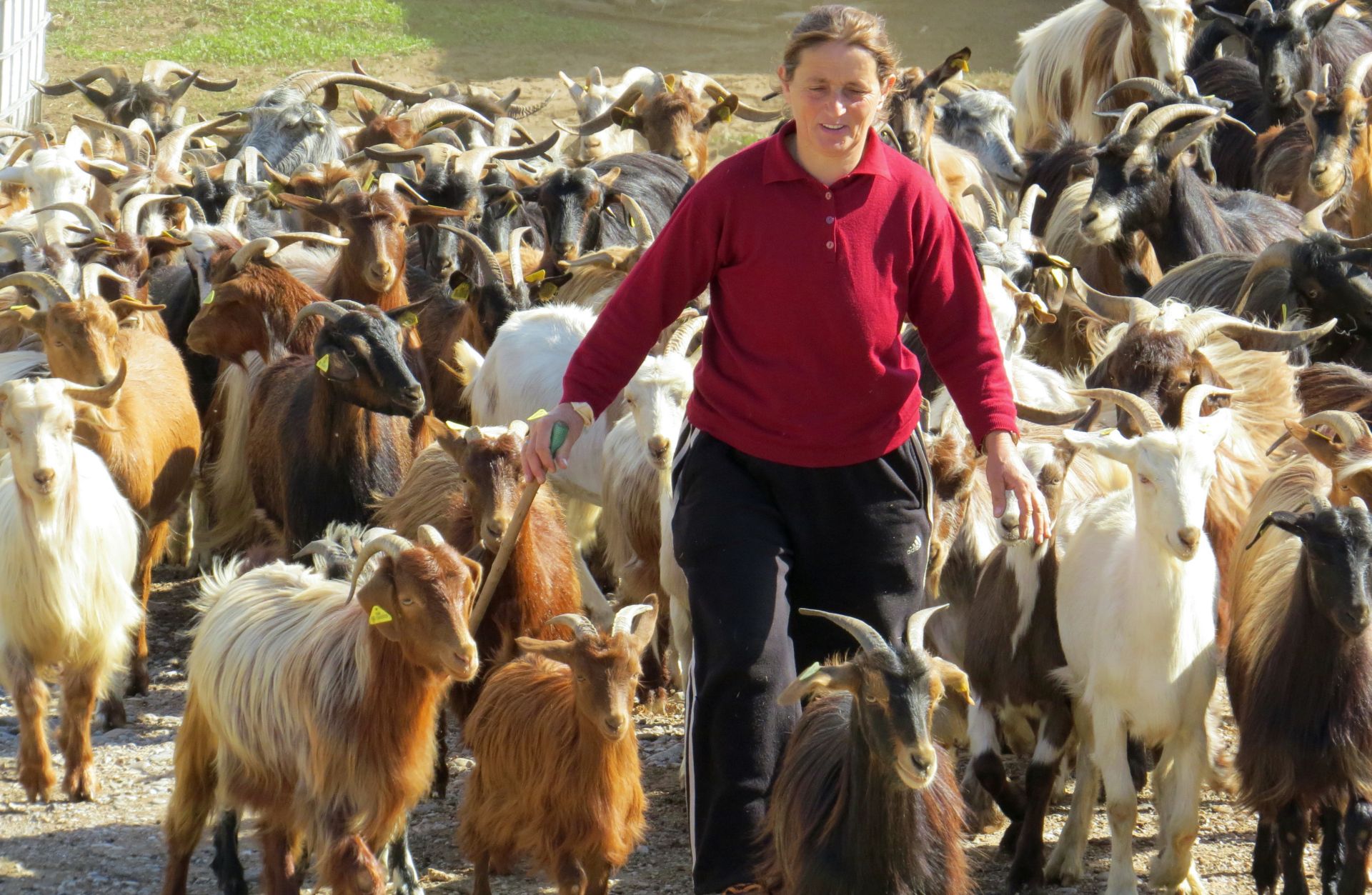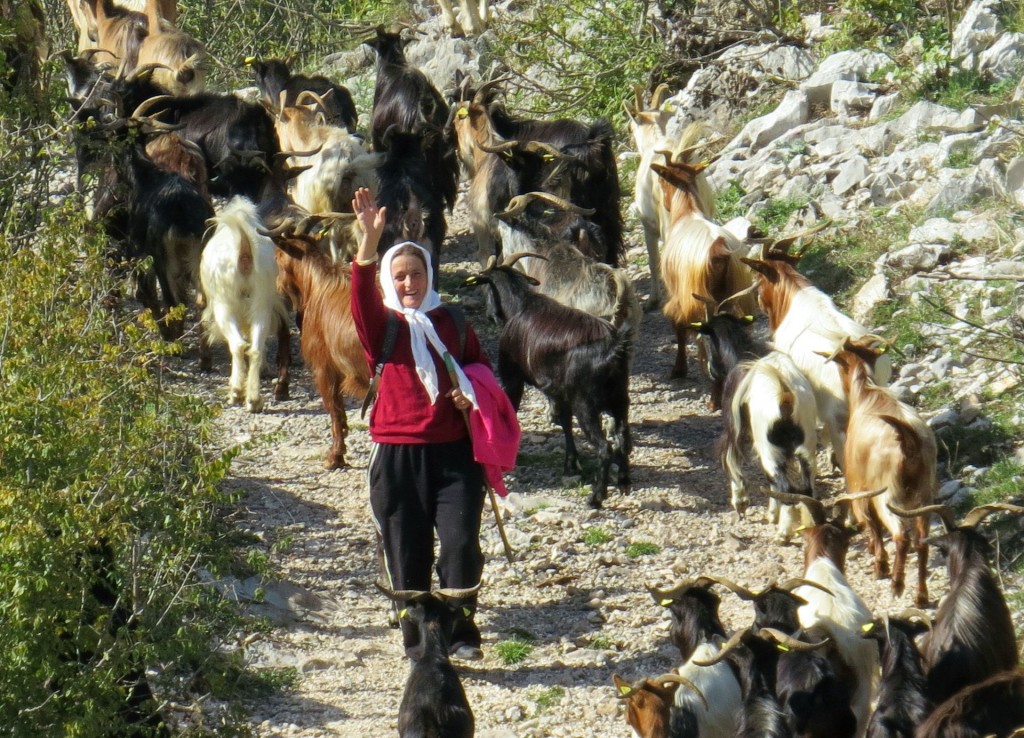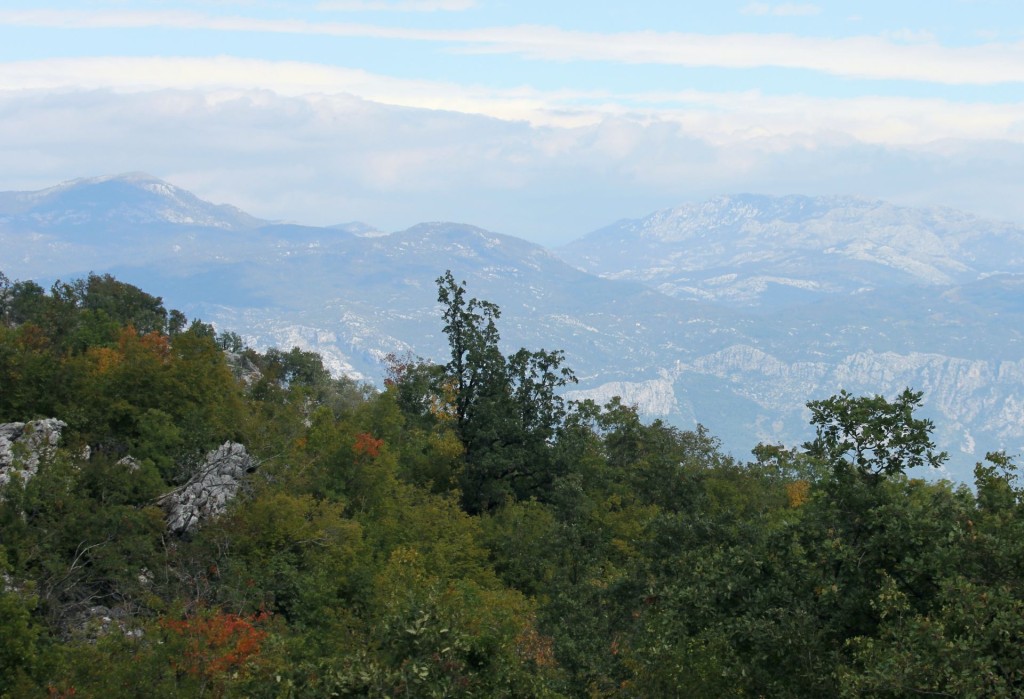 Have you ever heard about Mount Siljevica? It is situated in the region of Katunska nahija, between Zagarač and Bandići (Komani), at a distance of around 20 km from Podgorica. We expected it to be a nice place for a walking tour, as we desperately needed some fresh air after several days of hard work.
Have you ever heard about Mount Siljevica? It is situated in the region of Katunska nahija, between Zagarač and Bandići (Komani), at a distance of around 20 km from Podgorica. We expected it to be a nice place for a walking tour, as we desperately needed some fresh air after several days of hard work.
And thus, on a sunny October day, we took the highway to Nikšić, turned left to Komani after the bridge and then – in the middle of the village – we turned right, following the signpost to Đeđeza. After 16 km we parked the car (when the asphalt road stopped) and continued by foot towards Mount Siljevica. Nature is wonderful in this part of Central Montenegro. Huge karst rocks, dense maquis, small pieces of arable land and only a few houses, many of them abandoned. The silence is absolute and there was no traffic at all.
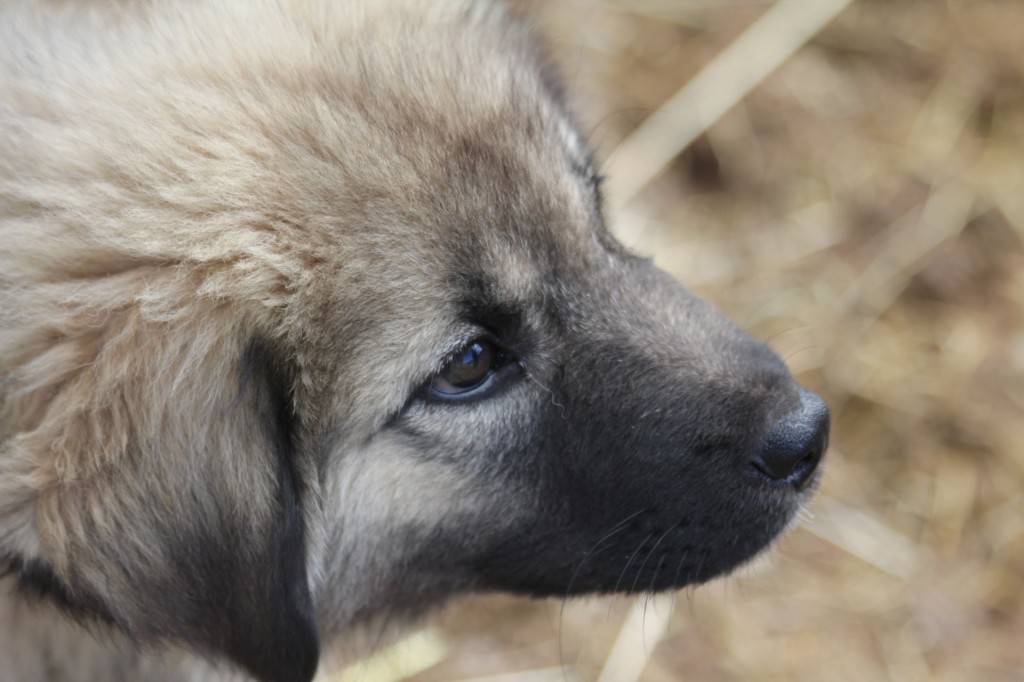 We admired the wild cyclamen that were scattered all around among many other plants and trees. The view of the Bjelopavlići Plain and the city of Podgorica itself was magnificent. Approaching the top of Mount Siljevica, we heard some strange sounds. What a surprise to find a house and a large farm building up there, in the middle of nowhere!
We admired the wild cyclamen that were scattered all around among many other plants and trees. The view of the Bjelopavlići Plain and the city of Podgorica itself was magnificent. Approaching the top of Mount Siljevica, we heard some strange sounds. What a surprise to find a house and a large farm building up there, in the middle of nowhere!
It appeared to be the Vuković goat farm, managed by an Albanian couple, Gjon (55) and his wife. They greeted us with the typical words: “How are you? How is your family? Welcome to our home!” Then they invited us for a cup of coffee inside, while Gjon told us a lot about his life and work. As “managers” of the farm, they take care of around 260 goats and shepherd their herd each day on the slopes of Mount Siljevica, “assisted” by a Macedonian shepherd dog (Šarplaninac). In the meantime, they have also got two puppies that looked like small teddy bears!
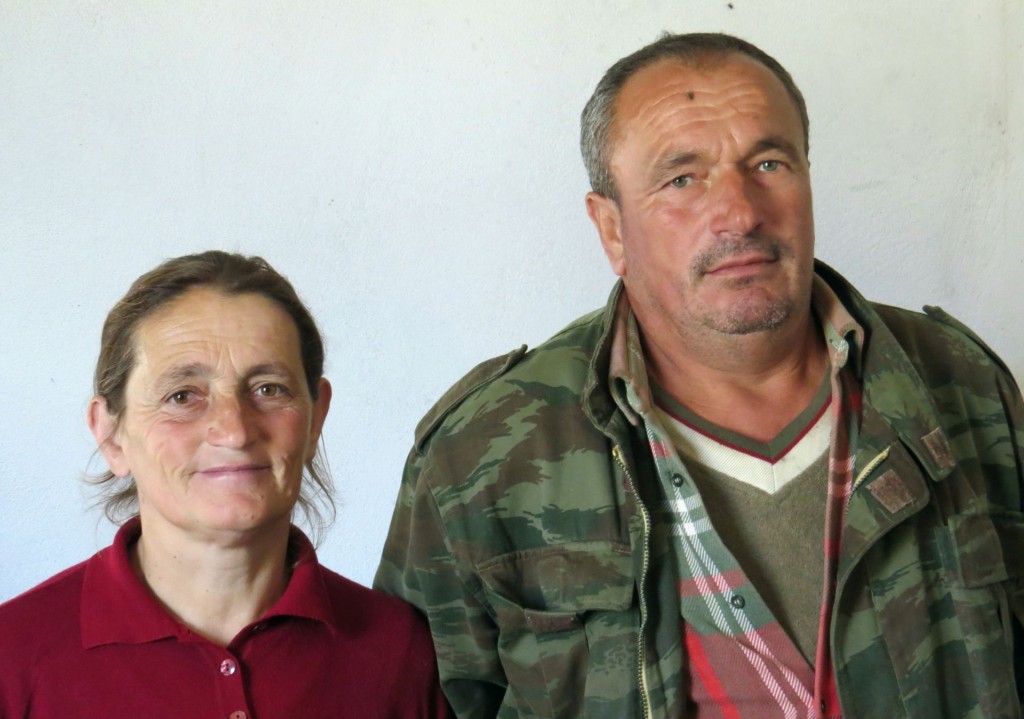 I just could not believe my ears when I heard how these people are living here, far from the „big city“, far from their family (five children, two of which are still going to school in Shkodra) and far from any form of social life. Wolves are frequent in this area and the dog had a big open wound at his leg: the result of a wolf’s attack last week. A veterinarian was not consulted – by licking his wound the dog would heal herself, said Gjon.
I just could not believe my ears when I heard how these people are living here, far from the „big city“, far from their family (five children, two of which are still going to school in Shkodra) and far from any form of social life. Wolves are frequent in this area and the dog had a big open wound at his leg: the result of a wolf’s attack last week. A veterinarian was not consulted – by licking his wound the dog would heal herself, said Gjon.
The house was simple and clean, but full of flies, which obviously did not bother its tenants. Man can get used to everything… But what impressed me most of all: these people really seemed to be happy! They were satisfied with their life, the fresh air and the quiet surroundings and they were proud of their children and grandchildren. They did not need anything else, as they had enough to live and they did not have to work very hard in spite of their good wages – if compared with their co-nationals in Albania (€ 900 in the summer and € 600 in the winter, apart from free food and lodging).
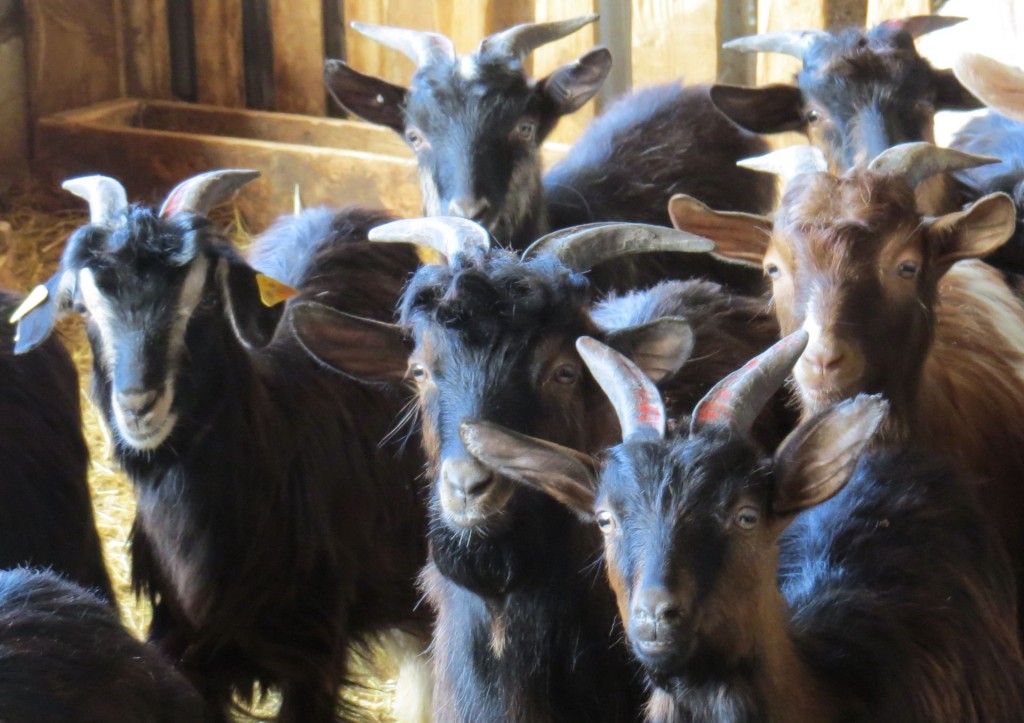 So what is happiness? The question really bothered me when we got back to Podgorica. For Gjon and his wife, happiness means a home, a family, work, food and enough money to live. They are not thinking about buying a new car or achieving a high position in society. They are not stressed by heavy workload or unhealthy ambitions. It reminded me of a quotation by Peace Pilgrim: “There is great freedom in simplicity of living. It is those who have enough but not too much who are the happiest.” Do you agree?
So what is happiness? The question really bothered me when we got back to Podgorica. For Gjon and his wife, happiness means a home, a family, work, food and enough money to live. They are not thinking about buying a new car or achieving a high position in society. They are not stressed by heavy workload or unhealthy ambitions. It reminded me of a quotation by Peace Pilgrim: “There is great freedom in simplicity of living. It is those who have enough but not too much who are the happiest.” Do you agree?
